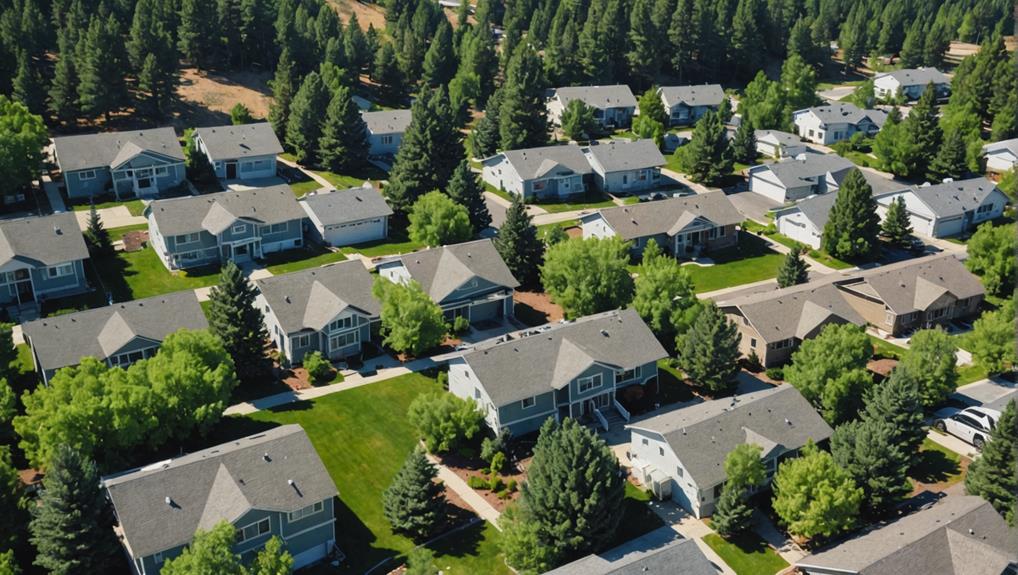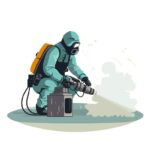We offer expert mold abatement services in 80913, tailored to the unique environmental conditions of Colorado Springs. Our certified team employs advanced detection techniques and state-of-the-art equipment to identify and remediate mold growth effectively. We recognize the local climate's impact on mold proliferation, including the effects of elevation and seasonal weather patterns. Our extensive approach includes thorough inspection, containment protocols, and post-abatement testing to guarantee complete mold removal and prevent future growth. With over a decade of experience, we're equipped to handle mold issues in various property types, addressing both immediate concerns and long-term prevention. Discover how our specialized knowledge can safeguard your property against mold.
Need Mold Abatement? Get Help Now from Colorado Springs Mold Removal
Colorado Springs Mold Removal's expert team provides immediate, professional mold abatement services to address your property's fungal contamination effectively. We recognize the urgency of mold issues and respond promptly to mitigate potential health risks and structural damage.
Our extensive mold abatement process begins with a thorough inspection, utilizing advanced detection techniques to identify visible and hidden mold growth. We assess the extent of contamination and pinpoint underlying moisture sources. Our certified professionals then implement a tailored remediation plan, employing state-of-the-art equipment and industry-approved methods to safely remove mold from affected areas.
We prioritize containment to prevent cross-contamination during the abatement process. Our team uses HEPA air filtration devices and establishes negative air pressure environments to guarantee mold spores don't spread to unaffected areas. We meticulously clean and sanitize surfaces using specialized antimicrobial agents from trusted brands like Concrobium and Benefect.
Post-abatement, we conduct thorough air quality testing to verify the effectiveness of our remediation efforts. We also address underlying moisture issues and provide recommendations to prevent future mold growth, providing a long-term solution for your property. Trust Colorado Springs Mold Removal for expert mold abatement services that prioritize your health and property's integrity.
About Colorado Springs Mold Removal
With over a decade of experience in mold remediation, we've established ourselves as the leading experts in mold removal and prevention throughout the Colorado Springs area. Our team of certified professionals utilizes advanced techniques and state-of-the-art equipment to guarantee thorough mold abatement in residential and commercial properties.
We begin our process with a meticulous inspection, identifying the extent of mold growth and underlying moisture issues. Our containment protocols prevent cross-contamination during removal, safeguarding unaffected areas. We employ a range of proven remediation methods, including HEPA filtration, negative air pressure systems, and specialized cleaning agents from trusted brands like Concrobium and Benefect.
Our approach extends beyond mere removal; we focus on long-term prevention by addressing root causes of mold growth. We implement moisture control strategies, improve ventilation, and apply antimicrobial treatments to inhibit future infestations. Our commitment to health and safety is unwavering, adhering to strict industry standards and best practices throughout the remediation process.
Additional Information About 80913

We've identified several reasons for mold growth in the 80913 area of Colorado Springs. The seasonal weather patterns in this region, characterized by fluctuating temperatures and humidity levels, greatly impact mold development. We'll examine how these climatic conditions, combined with local environmental factors, contribute to mold proliferation in residential and commercial properties within the 80913 zip code.
Reasons for Mold in 80913
Several factors contribute to mold growth in the 80913 ZIP code area of Colorado Springs, including its unique climate and geographical characteristics. We've observed that the region's semi-arid climate, characterized by relatively low humidity, can create conditions conducive to mold growth when moisture is introduced. The area's elevation, approximately 6,035 feet above sea level, can impact atmospheric pressure and moisture retention in buildings.
We've identified common sources of moisture in 80913 that lead to mold issues. These include poor ventilation in homes and businesses, especially in bathrooms and kitchens, leaky roofs or plumbing, and inadequate drainage around foundations. The area's occasional heavy rainstorms and snowmelt can exacerbate these problems, leading to water intrusion and subsequent mold growth.
Additionally, we've noted that many structures in 80913 were built during periods of rapid development, potentially leading to construction defects that allow moisture penetration. The combination of these factors creates an environment where mold can thrive if not properly addressed. Our team at Mold Removal Colorado Springs is equipped to tackle these unique challenges, ensuring effective mold remediation for residents and businesses in the 80913 area.
How Does Seasonal Weather in 80913 Affect Mold?
The seasonal weather patterns in ZIP code 80913 considerably influence mold growth and proliferation throughout the year. In this Colorado Springs area, we observe distinct seasonal changes that can create ideal conditions for mold development.
During spring, increased rainfall and snowmelt lead to higher humidity levels, which can foster mold growth in poorly ventilated spaces. Summer brings warm temperatures and occasional thunderstorms, creating a perfect environment for mold to thrive, especially in basements and crawl spaces. Fall's cooler temperatures and falling leaves can trap moisture around foundations, potentially leading to mold issues.
Winter in 80913 presents unique challenges. While the air is generally drier, indoor heating can create temperature differentials that result in condensation on windows and walls, providing moisture for mold growth. Additionally, snow accumulation around buildings can lead to water intrusion as it melts.
We've found that these seasonal variations require year-round vigilance in mold prevention and remediation. It's vital to maintain proper ventilation, control indoor humidity levels, and address any water intrusion promptly to mitigate the impact of 80913's seasonal weather on mold growth.
Frequently Asked Questions
How Long Does the Mold Abatement Process Typically Take?
We typically complete mold abatement in 3-7 days, depending on the extent of the infestation and affected area size. Our process includes initial inspection (1 day), containment setup (1 day), mold removal (1-3 days), cleaning and sanitizing (1 day), and final inspection (1 day). However, severe cases may require additional time. We're committed to thorough remediation, so we'll adjust our timeline as necessary to guarantee complete mold eradication and prevention of future growth.
Are There Any Health Risks During the Mold Removal Procedure?
We prioritize safety during mold removal procedures. While we take extensive precautions, there can be potential health risks if proper protocols aren't followed. Airborne mold spores may cause respiratory issues or allergic reactions in sensitive individuals. We utilize advanced containment systems and personal protective equipment to minimize exposure. Our certified professionals adhere to strict industry standards, ensuring the process is as safe as possible. We recommend occupants vacate the premises during active remediation to further reduce any health risks.
Can I Stay in My Home During Mold Remediation?
We generally advise vacating the premises during mold remediation for safety reasons. The process involves containment measures and potential release of mold spores, which can pose health risks. We use advanced equipment and techniques that may create noise and disruption. However, in some cases, partial occupancy might be possible if the affected area is isolated. We'll assess your specific situation and provide a recommendation based on the extent of mold growth and remediation requirements.
What Steps Can I Take to Prevent Mold Recurrence?
To prevent mold recurrence, we recommend several key steps. First, control moisture levels by fixing leaks promptly and using dehumidifiers in high-humidity areas. Second, guarantee proper ventilation, especially in bathrooms and kitchens. Third, maintain indoor humidity below 60%. Fourth, use mold-resistant products in susceptible areas. Fifth, regularly inspect and clean gutters and downspouts. Finally, address any water damage within 24-48 hours. These proactive measures greatly reduce the likelihood of mold growth in your home.
How Soon After Water Damage Should I Schedule Mold Inspection?
We recommend scheduling a mold inspection within 24-48 hours after water damage occurs. This timeframe is critical, as mold can begin to grow within 24-72 hours in moist conditions. Prompt inspection allows us to assess the extent of water intrusion, identify potential mold growth areas, and implement preventive measures. We'll utilize moisture meters and thermal imaging to detect hidden moisture pockets. Early intervention is key to preventing extensive mold colonization and minimizing property damage.
